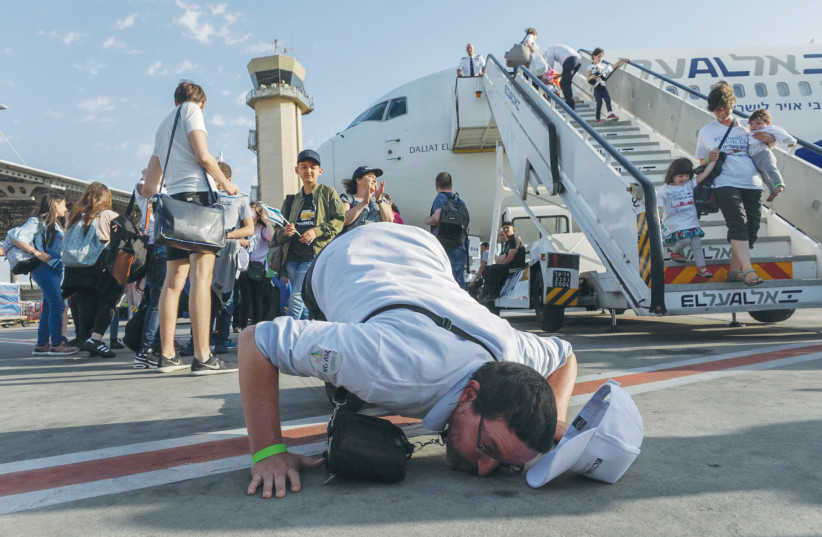A new aliyah initiative created by aliyah organizations and government ministries is going to make it easier for people with disabilities to make aliyah and get integrated, the parties involved announced this week.
The ultimate goal is to start the bureaucratic aliyah process prior to physically traveling to Israel so that legally protected rights can be ensured, while also making it easier to integrate after disabled olim arrive in the country. This project was launched by the Jewish Agency, Nefesh B’Nefesh, Qualita Aliyah, the Labor, Social Affairs and Social Services Ministry and the Aliyah and Integration Ministry.
The process, until now, was not nearly as streamlined as this. In fact, someone with disabilities making aliyah would need to arrive in Israel first and only then begin applying for recognition of their disability. This, in turn, meant that they would only receive the assistance they are supposed to receive from the state after an exhaustive and never-ending process.
The process, quite frankly, can be hellish. Aliyah is never easy, but for people living with disabilities and for their families, it causes severe delays in the receiving of basic rights. For many families, it makes them hesitate about making aliyah in the first place.
There’s really only one thing to be said about this update to the policy: It’s about time. The fact that until now there hasn’t been any kind of such pre-aliyah assistance for people with disabilities attempting to make aliyah is wrong. Israel, in its very foundation, sees the aliyah of Jewish people from far and wide as something integral to its very existence. Yet to this day, and not only for people with disabilities, it is an exhaustive, trying and sometimes traumatizing task.

The news of the new initiative comes, of course, at a time when the subject of aliyah is a hot topic in Israeli politics. Each government’s approach to aliyah is opposing that of the other. While the outgoing coalition has been opening its gates to olim, specifically those coming to escape the Ukraine-Russia conflict, and even debating the option of extending the Law of Return to broader groups descending from Jews, the incoming coalition has been looking to limit the Law of Return in its most basic form.
The new coalition and Law of Return
Members of Israel’s incoming coalition are, for the most part, opposed to allowing the Law of Return to include people who aren’t Jewish according to Halacha (i.e., their mother is not Jewish). Last October, when Finance Minister Avigdor Liberman proposed allowing fourth-generation descendants of Jews from Russia to come to Israel, Religious Zionist Party MK Simcha Rothman said the Law of Return “was enacted so that Israel would be a Jewish state,” and “Liberman is working on destroying Israel’s Jewish identity.”
Now, as the incoming coalition begins to set its guidelines, religious and haredi (ultra-Orthodox) parties have been demanding changes to the Law of Return to limit further aliyah, including the cancellation of the “grandchild clause,” which states that a person who has a Jewish grandparent can immigrate to Israel even if they are not recognized as Jewish according to Halacha.
Reports this week came out claiming that the Likud will not agree to a demand by all of its coalition negotiation partners to cancel the “grandchild clause.” If true, it’s is a welcome and much-needed act of putting one’s foot down.
While some claim that this clause operates as a loophole for non-Jewish immigration, in reality, it’s a policy set in stone in the very foundation of the country. Limiting access to those deserving of making aliyah – people who already see themselves as Jewish and who want to integrate and contribute to our living and thriving society – should not become Israeli policy. Whether they are living with disabilities or have the option of immigrating to Israel on the “grandchild clause,” prospective olim deserve equal opportunity to immigrate to the land they call home.
Israel should be an inclusive country, and we applaud the effort to ease the burden of olim with disabilities. For that same reason, the grandfather clause should remain in place.
